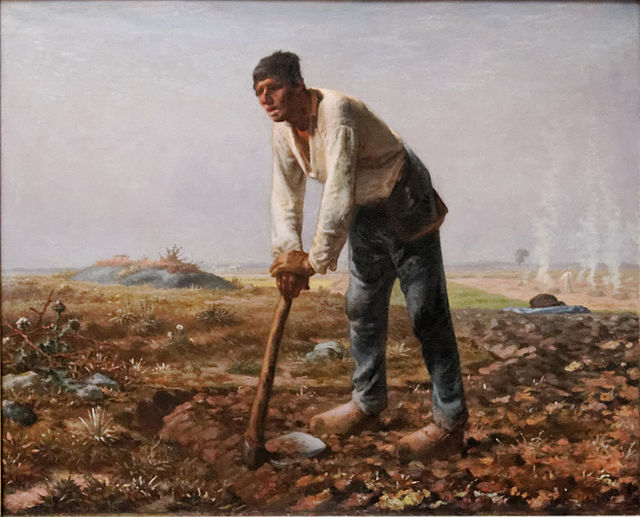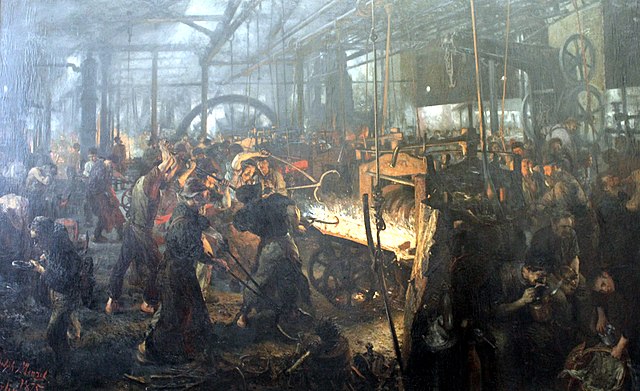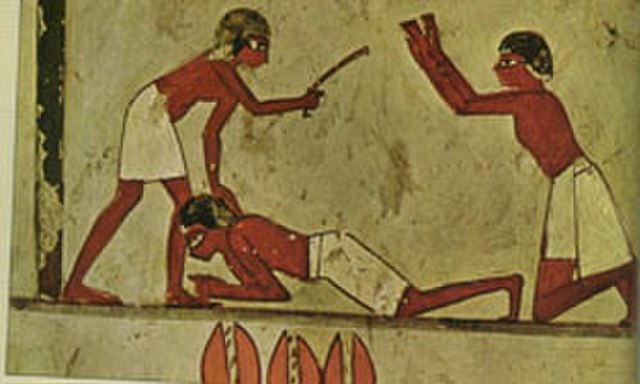The proletariat is the social class of wage-earners, those members of a society whose only possession of significant economic value is their labour power. A member of such a class is a proletarian or a proletaire. Marxist philosophy regards the proletariat under conditions of capitalism as an exploited class— forced to accept meager wages in return for operating the means of production, which belong to the class of business owners, the bourgeoisie.
Secessio plebis, a form of protest in ancient Rome where the plebeians would leave the city, causing the economy to collapse
Jean-François Millet - The man with the hoe
Adolph Menzel - Iron rolling mill (1872-1875)
A 1911 Industrial Worker publication advocating industrial unionism based on a critique of capitalism. The proletariat "work for all" and "feed all".
A social class or social stratum is a grouping of people into a set of hierarchical social categories, the most common being the working class, middle class, and upper class. Membership of a social class can for example be dependent on education, wealth, occupation, income, and belonging to a particular subculture or social network.
Slave beating in ancient Egypt
Burmese nobles and servants
Nigerian warriors armed with spears in the retinue of a mounted war chief. The Earth and Its Inhabitants, 1892
A symbolic image of three orders of feudal society in Europe prior to the French Revolution, which shows the rural third estate carrying the clergy and the nobility








